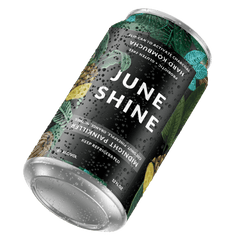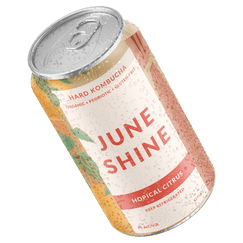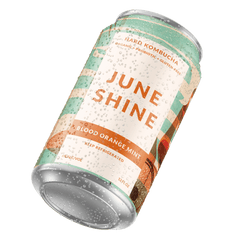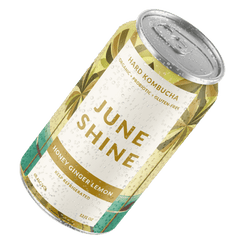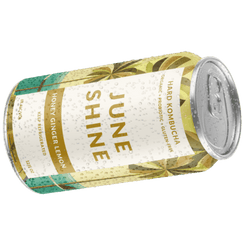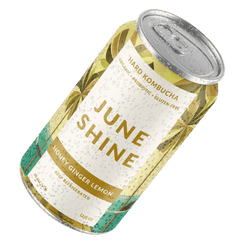Is Kombucha Gluten Free?

Unless you’ve been living under a rock, you are well aware of the growing amount of gluten-free options available on the market. Everything from gluten-free bread to gluten-free muffins has popped up in stores and online. You’ve probably even been offered a gluten-free menu at your favorite restaurant once or twice.
It may seem like the world has gone crazy, but it’s important for those with dietary restrictions to have as wide a variety of food and drink as the rest of us do. Most people aren’t cutting out gluten for the fun of it. Many suffer from celiac disease or have some form of gluten sensitivity.
With all the gluten-free options entering the drink market, there has been one notable exclusion from the conversation: kombucha.
Kombucha and Gluten
People with food restrictions have it rough. Constantly checking labels, asking about ingredients, and going out of the way to make sure their next meal falls in line with their diet is hard work.
If you fall into one of these categories and want one less thing you have to check the label on, kombucha is a gluten-free beverage that’s still packed full of solid flavors. Kombucha is tart, refreshing, and sure to scratch the tasty drink itch you’ve been having.
Kombucha has more going for it than meets the eye. But what exactly is this magical drink we speak of, and how is it gluten-free?
Where Did Kombucha Come From?
Kombucha is a fermented tea that has been enjoyed for centuries. Its origins date back to 200 BC when members of China’s Qin Dynasty started brewing the good stuff.
They discovered that yeast and symbiotic cultures could form a gelatinous substance known as a SCOBY, an acronym for the symbiotic culture of bacteria and yeast. They then used that to ferment tea.
Kombucha stayed popular throughout the eastern hemisphere for centuries, and in recent decades, it also picked up steam stateside. People love kombucha for its tartness and potential health benefits, not to mention that tantalizing taste.
Historically, kombucha was used to help treat disease. Nowadays, it’s a slightly fizzy drink that can aid in digestion, supply you with antioxidants, and support your immune system. It’s even evolved to feature some wild flavors like Blood Orange Mint and Chili Mango.
Gluten Intolerance and Celiac Disease
Gluten is the protein that is found in wheat, rye, and barley. It’s what gives bread its structure, but it also doesn’t agree with a lot of people.
Celiac disease is an autoimmune disorder that affects almost one out of every hundred people worldwide. When people with celiac disease ingest gluten, they risk damage to their small intestine, and their bodies may not absorb nutrients effectively.
Even if you don’t have celiac disease, you may still have gluten intolerance. In fact, six percent of the U.S population has gluten intolerance. People with gluten intolerance have difficulty digesting gluten and may have stomach discomfort if they ingest it.
With so many people dealing with gluten intolerance and celiac, it is no wonder why GF options are becoming more and more prevalent.
And sure, it’s pretty easy to avoid bread and beer, but malt, brewer’s yeast, and certain starches are everywhere. Sauces, gravies, and dressings tend to have wheat flour, starch, or malt, and even something as seemingly unobtrusive as corn flakes can include malt.
Why Is Kombucha Gluten-Free?
The same reason other foods and drinks don’t have gluten: kombucha doesn’t have any wheat, rye, or barley, and no additives like starches. It’s only made with honey or raw cane sugar, tea, and a SCOBY culture.
That is not to say every single can of booch will be gluten-free. Some companys’ recipes include additives, but JuneShine and other pure kombuchas certainly don’t.
We should mention that despite the strides made to help consumers know what is in their foods, the FDA has yet to mandate “gluten-free” labeling, so read labels closely.
Kombucha and Probiotics
Anyone can reap the benefits of probiotics. Mostly known as the starring players in yogurt, these little guys are also on the loose in kombucha.
The probiotics in traditional kombucha provide digestion relief and promote healthy bacteria within the gut. While that might sound gross, some bacteria is good for you, and it can be extra helpful for people with gluten sensitivities.
A Potential Detoxing Agent
Kombucha is a natural detoxification agent, thanks to tons of organic acids and antioxidants that can help cleanse the body. It’s one of the reasons it was used in the medical profession for centuries.
Traditional kombucha made from green tea includes bioactive compounds like polyphenols that act as antioxidants. These antioxidants protect cells from damage, burn fat, and soothe inflammation.
Naturally Gluten-Free
If you follow a gluten-free diet, kombucha can take one more worry off your plate. When you choose a kombucha, whether traditional or hard, that only includes organic, natural ingredients, you don’t have to be concerned about hidden gluten. And if that kombucha just so happens to come in refreshing flavors like Grapefruit Paloma and Hopical Citrus, all the better.
Sources:
What is Kombucha and Why is it Good for the Gluten Free? | celiacscience.com
Kombucha 101: Demystifying The Past, Present And Future Of The Fermented Tea Drink | Forbes
